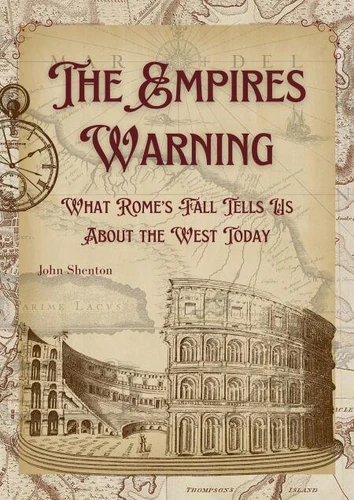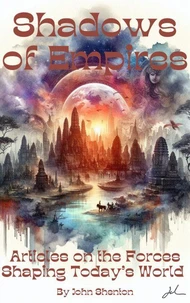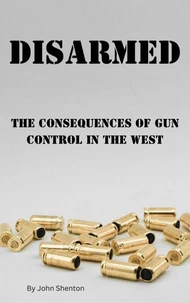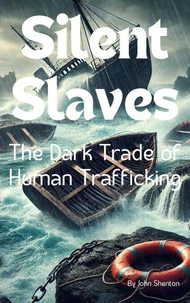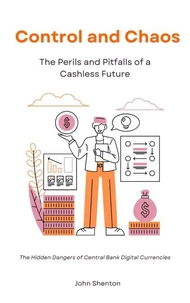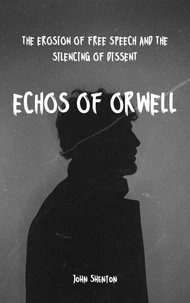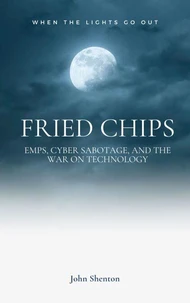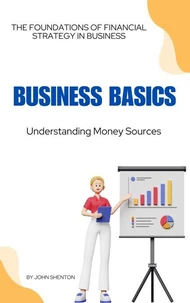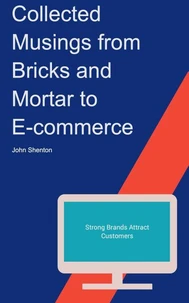The Empire’s Warning: What Rome’s Fall Tells Us About the West Today
Par :Formats :
Disponible dans votre compte client Decitre ou Furet du Nord dès validation de votre commande. Le format ePub est :
- Compatible avec une lecture sur My Vivlio (smartphone, tablette, ordinateur)
- Compatible avec une lecture sur liseuses Vivlio
- Pour les liseuses autres que Vivlio, vous devez utiliser le logiciel Adobe Digital Edition. Non compatible avec la lecture sur les liseuses Kindle, Remarkable et Sony
 , qui est-ce ?
, qui est-ce ?Notre partenaire de plateforme de lecture numérique où vous retrouverez l'ensemble de vos ebooks gratuitement
Pour en savoir plus sur nos ebooks, consultez notre aide en ligne ici
- FormatePub
- ISBN8227752116
- EAN9798227752116
- Date de parution05/10/2024
- Protection num.pas de protection
- Infos supplémentairesepub
- ÉditeurBig Dog Books, LLC
Résumé
The Empire's Warning: What Rome's Fall Tells Us About the West Today is a thought-provoking exploration of the parallels between the decline of the Roman Empire and the challenges facing modern Western civilisation. Drawing on extensive historical research and personal experiences-such as walking Hadrian's Wall and visiting Roman Vindolanda-the book examines whether the West, like Rome, is destined to fall or if it can learn from history and avert a similar fate.
The book begins by comparing the Roman Empire at its zenith to the post-World War II West, which, like Rome, has enjoyed unparalleled dominance in military, economic, and cultural influence. Yet, just as Rome's decline came in slow, subtle stages, so too do the signs of Western decay. Political instability, economic stagnation, military overreach, and the breakdown of public trust are examined in detail, offering readers a compelling account of the present-day West through the lens of history.
Chapters such as The Role of Governance and Economic Stagnation and the Collapse of Infrastructure delve into the systemic issues that contributed to Rome's downfall, highlighting alarming similarities in Western governance, corruption, and fiscal irresponsibility. Immigration and Integration offers an in-depth analysis of how mass migration destabilised the Roman Empire and draws comparisons to contemporary immigration challenges in the West.
As the book progresses, it asks whether the West can reverse its current trajectory. In Can Decline Be Reversed?, historical lessons from figures like Diocletian and Constantine are explored, along with modern policy recommendations for economic reform, political renewal, and societal cohesion. The final chapter, The Future of Western Civilisation: Decline or Transformation?, poses the question of whether Western society can transform itself in the face of technological disruption, geopolitical shifts, and cultural decay.
Ultimately, The Empire's Warning is a call to action. While the story of Rome is a cautionary tale, the book remains cautiously optimistic, offering insights on how the West might rejuvenate itself through bold reforms and renewed civic duty. In a world of growing uncertainty, this book challenges readers to reflect on the future of their civilisation and the lessons history has to offer.
The book begins by comparing the Roman Empire at its zenith to the post-World War II West, which, like Rome, has enjoyed unparalleled dominance in military, economic, and cultural influence. Yet, just as Rome's decline came in slow, subtle stages, so too do the signs of Western decay. Political instability, economic stagnation, military overreach, and the breakdown of public trust are examined in detail, offering readers a compelling account of the present-day West through the lens of history.
Chapters such as The Role of Governance and Economic Stagnation and the Collapse of Infrastructure delve into the systemic issues that contributed to Rome's downfall, highlighting alarming similarities in Western governance, corruption, and fiscal irresponsibility. Immigration and Integration offers an in-depth analysis of how mass migration destabilised the Roman Empire and draws comparisons to contemporary immigration challenges in the West.
As the book progresses, it asks whether the West can reverse its current trajectory. In Can Decline Be Reversed?, historical lessons from figures like Diocletian and Constantine are explored, along with modern policy recommendations for economic reform, political renewal, and societal cohesion. The final chapter, The Future of Western Civilisation: Decline or Transformation?, poses the question of whether Western society can transform itself in the face of technological disruption, geopolitical shifts, and cultural decay.
Ultimately, The Empire's Warning is a call to action. While the story of Rome is a cautionary tale, the book remains cautiously optimistic, offering insights on how the West might rejuvenate itself through bold reforms and renewed civic duty. In a world of growing uncertainty, this book challenges readers to reflect on the future of their civilisation and the lessons history has to offer.
The Empire's Warning: What Rome's Fall Tells Us About the West Today is a thought-provoking exploration of the parallels between the decline of the Roman Empire and the challenges facing modern Western civilisation. Drawing on extensive historical research and personal experiences-such as walking Hadrian's Wall and visiting Roman Vindolanda-the book examines whether the West, like Rome, is destined to fall or if it can learn from history and avert a similar fate.
The book begins by comparing the Roman Empire at its zenith to the post-World War II West, which, like Rome, has enjoyed unparalleled dominance in military, economic, and cultural influence. Yet, just as Rome's decline came in slow, subtle stages, so too do the signs of Western decay. Political instability, economic stagnation, military overreach, and the breakdown of public trust are examined in detail, offering readers a compelling account of the present-day West through the lens of history.
Chapters such as The Role of Governance and Economic Stagnation and the Collapse of Infrastructure delve into the systemic issues that contributed to Rome's downfall, highlighting alarming similarities in Western governance, corruption, and fiscal irresponsibility. Immigration and Integration offers an in-depth analysis of how mass migration destabilised the Roman Empire and draws comparisons to contemporary immigration challenges in the West.
As the book progresses, it asks whether the West can reverse its current trajectory. In Can Decline Be Reversed?, historical lessons from figures like Diocletian and Constantine are explored, along with modern policy recommendations for economic reform, political renewal, and societal cohesion. The final chapter, The Future of Western Civilisation: Decline or Transformation?, poses the question of whether Western society can transform itself in the face of technological disruption, geopolitical shifts, and cultural decay.
Ultimately, The Empire's Warning is a call to action. While the story of Rome is a cautionary tale, the book remains cautiously optimistic, offering insights on how the West might rejuvenate itself through bold reforms and renewed civic duty. In a world of growing uncertainty, this book challenges readers to reflect on the future of their civilisation and the lessons history has to offer.
The book begins by comparing the Roman Empire at its zenith to the post-World War II West, which, like Rome, has enjoyed unparalleled dominance in military, economic, and cultural influence. Yet, just as Rome's decline came in slow, subtle stages, so too do the signs of Western decay. Political instability, economic stagnation, military overreach, and the breakdown of public trust are examined in detail, offering readers a compelling account of the present-day West through the lens of history.
Chapters such as The Role of Governance and Economic Stagnation and the Collapse of Infrastructure delve into the systemic issues that contributed to Rome's downfall, highlighting alarming similarities in Western governance, corruption, and fiscal irresponsibility. Immigration and Integration offers an in-depth analysis of how mass migration destabilised the Roman Empire and draws comparisons to contemporary immigration challenges in the West.
As the book progresses, it asks whether the West can reverse its current trajectory. In Can Decline Be Reversed?, historical lessons from figures like Diocletian and Constantine are explored, along with modern policy recommendations for economic reform, political renewal, and societal cohesion. The final chapter, The Future of Western Civilisation: Decline or Transformation?, poses the question of whether Western society can transform itself in the face of technological disruption, geopolitical shifts, and cultural decay.
Ultimately, The Empire's Warning is a call to action. While the story of Rome is a cautionary tale, the book remains cautiously optimistic, offering insights on how the West might rejuvenate itself through bold reforms and renewed civic duty. In a world of growing uncertainty, this book challenges readers to reflect on the future of their civilisation and the lessons history has to offer.

